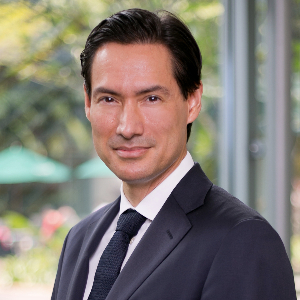Connect with Us
602 Park Point Drive, Suite 225, Golden, CO 80401 – +1 303.495.2073
© 2025 Medical Affairs Professional Society (MAPS). All Rights Reserved Worldwide.
Traditionally, strategy within the biopharmaceutical and MedTech industry was driven by R&D and Commercial functions. Now, Medical Affairs provides a third critical function. Here, MAPS speaks with Medical Strategy Focus Area Working Group (FAWG) co-leads Becky Harmon and Simon Kyaga about the emerging strategic opportunities for Medical Affairs and how the Med Affairs function is driving a new perception of the industry as a whole.


MAPS: How has the role of Medical Affairs changed in recent years?
Becky: It’s been quite a journey! Med Affairs in the past has been in a consultative role. Even with launch readiness efforts, Commercial would drive the strategy and come to Medical and say, ‘You like this, right?’ And now launch is very much driven by Medical or jointly driven by Medical and Commercial. COVID maybe accelerated some of that – when access to healthcare providers wasn’t possible given health systems were focusing on treating COVID patients, they still had need for medical information and had many other disease states that needed to be managed. And it was up to Medical to provide deliverables – people were hungry for the information Medical Affairs could provide and its was just a matter of leaning into that opportunity.
Simon: Also, moving away from the era of blockbuster treatments to more targeted drugs means healthcare providers and the industry as a whole needs a more targeted understanding of the treatment landscapes. Medical Affairs bridges the complex science into clinical value. In some parts of the world, it’s also clear the push for compliance also has required development of the Med Affairs function. The change is well underway and MAPS has been an essential part of that.
MAPS: You talk about leaning into opportunities for Medical Affairs strategic leadership. What does that look like? What can Med Affairs do to lean in?
Simon: Something I’ve been thinking about is that Med Affairs has two different domains of expertise: Our scientific ability and our ability to translate science into something understandable, and the other piece is understanding of the healthcare organization. Sometimes you have doctors leading in Med Affairs and sometimes you have scientists leading. This lets Med Affairs act as a conduit both internally and externally. Internally, MA is the connection between R&D and Commercial; externally, MA is the bridge between the organization and society, and vice versa.
Becky: Med Affairs has gotten a few things right that we haven’t paid attention to in the past. For example, we’ve paid attention to business acumen and not only scientific rigor so that we incorporate fundamentals of strategy and speak about things in a way the broader organization can appreciate. Also, Med Affairs is hiring people who are sound clinically but aren’t solely scientists and can be the link from studies to marketing to understanding the external environment. Last thing: We’ve gotten better at articulating our value. We are working to ensure that the organization understands the work that Medical Affairs does and make it less ambiguous.
Simon: A personal point of view for me as I’m also a physician is I’ve always wondered why pharma has such a bad reputation; after all, the industry puts the largest proportion of revenue into R&D that has clear societal benefit, especially after COVID. For me, one of the key drivers to be part of Med Affairs is the ability to shift the way the whole pharma industry can be viewed and I’m really happy to be part of that change. The value externally is there, the value internally is becoming known. Organizations are starting to appreciate the ability of Med Affairs to drive the perception of the organization as a whole.
MAPS: In addition to communicating the organization’s scientific message, Med Affairs also has the opportunity to deliver insights back to the organization, right?
Becky: When we think of our Evidence Generation and drug development strategies, clinical trials, and indications we’ll seek, Med Affairs – because of direct connection to HCPs and with an understanding of the patient experience – we are best positioned to bring insights from these external stakeholders and use those insights to influence development strategies. We can listen for unmet needs and opportunities and bring that back into the organization to shape what we’re doing in R&D.
MAPS: So, with all this opportunity, what are the strategic challenges Medical Affairs faces?
Simon: Articulating our value. That remains a hard thing. Even though we have good examples, it’s more difficult for MA. It’s easy for R&D to message its value and easy for Commercial.
Becky: One challenge as we move from a consultative role into a strategic, global thinking role, is to make sure we don’t leave behind the execution part of the strategy. Strategy without execution is just wishful thinking so we need to ensure that we are delivering on both.
The Innovate article series highlights the ideas of Medical Affairs thought leaders from across the biopharmaceutical and MedTech industries. To submit your article for consideration, please contact MAPS Communications Director, Garth Sundem.
602 Park Point Drive, Suite 225, Golden, CO 80401 – +1 303.495.2073
© 2025 Medical Affairs Professional Society (MAPS). All Rights Reserved Worldwide.

 Medical Affairs Insights: A Glossary of Terms
Medical Affairs Insights: A Glossary of Terms